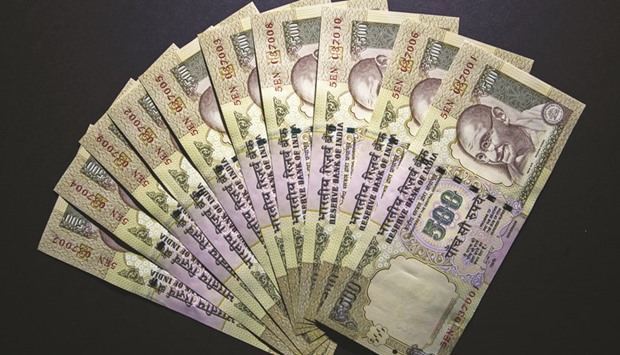Indian stocks climbed to a six-week high as foreign funds added to their holdings of domestic shares and a global stocks rally gathered momentum in Asia.
Tata Motors gained for a ninth day, its longest winning streak since 2003. ICICI Bank was the best performer on a gauge of 13 lenders, while State Bank of India climbed the most in a week. Coal India, the biggest miner of the fuel, climbed for the first time in five days. A gauge of small-cap shares rose to a one-month high.
The S&P BSE Sensex rose 0.4% to 24,804.28 points at the close in Mumbai. The gauge capped a second weekly advance on Friday as overseas investors bought $65mn of local shares March 11, boosting the month’s inflow to $1.5bn. Risk appetite has returned globally before central banks including the US Federal Reserve review policy this week.
Central banks are being relied on to revive the global economy after a worsening growth outlook wiped almost $9tn off the value of equities worldwide this year through mid-February.
The bulk of the stock-market losses have been clawed back, helped by monetary easing in China and last week’s announcement of unprecedented stimulus by the European Central Bank. The Bank of Japan will conclude a policy review today and a Federal Reserve meeting ends tomorrow.
In India, equities have risen in eight out of 10 days after Finance Minister Arun Jaitley in his February 29 federal budget pledged to further cut the fiscal deficit, stoking speculation of an interest-rate reduction by the central bank. Policy measures to boost economic growth, including the passage of the real-estate bill and easing rules for mining companies, have added to the momentum.
Reserve Bank of India Governor Raghuram Rajan said the central bank was “comforted” by Prime Minister Narendra Modi’s plan to shrink the budget deficit to 3.5% of GDP while telling reporters to “wait and see” how that feeds into monetary policy. He is due to review policy on April 5 as he looks to keep CPI within 5% by March 2017.
“While chances of a rate cut in India have increased, Rajan may do something different because he doesn’t want people to out-guess him,” Gupta said. “He likes to surprise.”
India’s wholesale prices fell more than estimated ahead of benchmark consumer data due later on Monday. Consumer prices may have climbed 5.5% from a year earlier last month, compared with 5.7% in January, according to the median estimate of 32 economists in a Bloomberg survey. That compares with January’s 5.69% gain.
Tata Motors rallied 3.4% to its highest price since January 5. The stock has surged 22% so far this month. ICICI Bank increased to its highest close since January 29. State Bank of India added 0.9%.
Pfizer India tumbled 9%, the since January 2008, after the company said it has discontinued making Corex cough syrup. The government banned the sale of fixed dose combination of Chlopheniramine Maleate and Codeine syrup with immediate effect, the drugmaker said in a filing. Corex recorded sales of Rs1.76bn in the April-December period, the company said.
Meanwhile the rupee yesterday erased all the morning gains and closed weaker against the US dollar as traders turned cautious ahead of the consumer price inflation (CPI) data, which was released later in the evening.
The currency closed at 67.11, down 0.08% from its previous close of 67.05. The rupee opened at 66.98 and touched a high of 66.88, a level last seen on January 13 and touched a low of 67.15.
Currency traders are also waiting for the US Federal Reserve’s stance on key policy rates after its two-day policy meet scheduled for today and tomorrow.
Asian currencies closed mixed. South Korean won was up 0.59%, Japanese yen 0.17%, Indonesian rupiah 0.14%, while Taiwan dollar up 0.1%. However, Malaysian ringgit was down 0.43%, China offshore 0.15%, Singapore dollar 0.12%, Thai Baht 0.07%.
The dollar index, which measures the US currency’s strength against major currencies, was trading at 96.475, up 0.31% from its previous close of 96.172.
India’s 10-year bond yield closed at 7.605%, compared with its Friday’s close of 7.627%.
Since the beginning of this year, the rupee has lost 1.42%, while foreign institutional investors have sold $1.46bn from local equity and $1.4mn in debt markets.

The rupee closed at 67.11 yesterday, down 0.08% from its previous close of 67.05.
